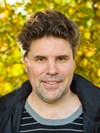Umeå Transformation Research Initiative (UTRI)
Umeå University is investing in sustainability research. The new Umeå Transformation Research Initiative (UTRI) supports collaborations promoting sustainable transition at Umeå University, but also welcomes collaborations with other universities and stakeholders in the field.
UTRI held a kick-off on Monday 30 November and Tuesday 1 December 2020 in the form of an online webinar. Keynote speeches from honorary doctors at Umeå University was: Tedros Adhanom Ghebreyesus, Director-General of the World Health Organization, Nancy Langton, Professor at Michigan Technological University, the US, John Anderson, Professor at Loughborough University, the UK, and Michael Hall, Professor at the University of Canterbury, New Zeeland.
The moderator was Ola Nordebo.



